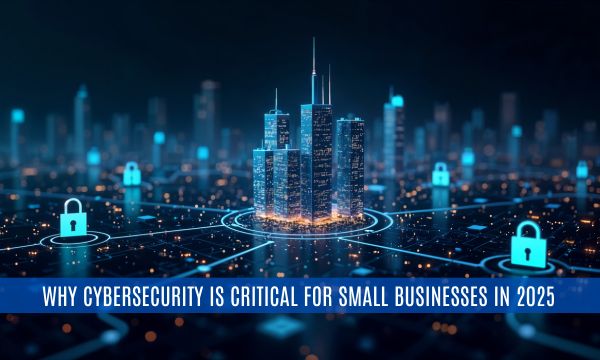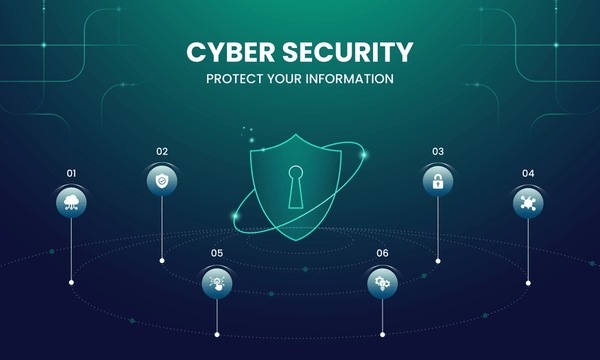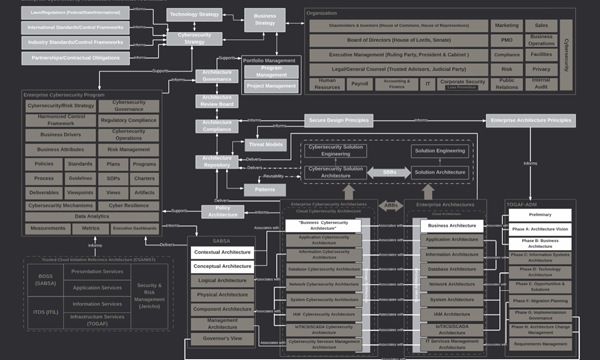
Because you're never too small to be targeted anymore.
In June 2025, a small advertising firm in Lucknow, India, became the victim of a ransomware attack that encrypted all their files, from campaign creatives to client invoices. The attackers demanded a hefty ransom, and with no backups or contingency plan in place, the company had to rebuild weeks of work from scratch.
This wasn't a tech startup or a large enterprise—it was an SMB with less than 25 employees.
And it’s not an isolated case.
According to the 2024 IBM X-Force Threat Intelligence Report, 43 percent of global cyberattacks targeted small and medium businesses (SMBs). In India, the number is believed to be higher, as many small firms don’t even report incidents.
So why are cybercriminals suddenly so interested in small businesses?
Because you’re easier to breach, and you still hold valuable data—payment records, client information, employee details, vendor contracts, and more. And unlike large corporations, it might not be noticed as an intrusion until it’s too late.
This is where cybersecurity steps in—not as a tech buzzword, but as a business essential.
What Is Cybersecurity?
Cybersecurity is the practice of protecting your business’s digital infrastructure—your emails, customer data, software systems, websites, and internal tools—from unauthorized access, theft, damage, or disruption.
If your business is connected to the internet in any way (and let’s face it, who isn’t?), cybersecurity is not optional. Whether you're running a medical clinic, a logistics company, a design studio, or a boutique manufacturing unit, your digital presence needs protection just like your physical office.
Think of Cybersecurity Like This:
1. Firewall = Gatekeeper — Keeps unauthorized traffic out of your network
2. Antivirus = Watchdog — Scans for known threats like malware or spyware
3. MFA (Multi-Factor Authentication) = Door Lock + Passcode — Verifies who’s coming in
4. Backups = Insurance — If something fails, you can restore
5. Training = Security Guard — Your employees are trained to spot suspicious behavior
Why Cybersecurity Matters More to SMBs Than Ever Before?
Large corporations have IT departments, Chief Information Security Officers (CISOs), and million-dollar security budgets. Small businesses? Not so much.
That’s exactly why they are a soft target.
Here’s what makes SMBs vulnerable:
1. Lack of Awareness - Most SMB owners and employees don’t realize they’re at risk until it happens.
2. Limited IT Resources - May have one IT person or none. That means updates, patches, monitoring—often fall behind.
3. No Incident Response Plan - When an attack hits, there’s confusion: “Who do we call? What do we shut down? What can we recover?”
4. Reliance on Legacy Tools - Many SMBs still use outdated software (Windows 7, old CRMs, pirated tools), which are riddled with known vulnerabilities.
5. No Training for Employees - Cyber attackers often succeed not by hacking systems, but by tricking people into clicking malicious links or revealing passwords.
“Cybersecurity is no longer a technical decision. It’s a business survival decision.”
The Most Common Cyber Threats Targeting SMBs
Understanding the enemy is the first step in defense. Here are the most frequent attacks faced by Indian SMBs today:
1. Phishing Attacks - Fake emails or WhatsApp messages impersonating banks, vendors, or government bodies. These trick users into clicking malicious links or giving away sensitive data.
Example: An employee receives an email claiming to be from your bank, asks to verify account details, and boom—credentials are stolen.
2. Ransomware - Malware that locks your systems and demands a ransom in Bitcoin or Monero to unlock them. Even paying doesn’t guarantee recovery.
India saw a 51% rise in ransomware in 2023, with small businesses being the majority victims.
3. Business Email Compromise (BEC) - An attacker gains access to your business email and manipulates financial transactions, such as vendor payments.
This often leads to losses in lakhs, especially when finance teams don’t double-check requests.
4. Insider Threats (Accidental or Malicious) - Employees unknowingly download malicious attachments or click on bad links, or worse, disgruntled employees leak data.
5. Outdated Software and Devices - Unpatched systems are like open doors. Cybercriminals use automated tools to scan for old vulnerabilities.
What Can Happen If You Ignore Cybersecurity?
* Data Loss: From invoices to tax records and customer databases—gone in minutes. Stolen patents, IPs and important business data can lead to closing of the business.
* Financial Loss: Ransom payments, loss of business, legal penalties
* Reputation Damage: Customers may never trust you again, employees will also lose moral
* Operational Downtime: Days or weeks lost in recovery
* Regulatory Fines: The DPDP Act, GDPR, HIPPA and ISO 27001 make businesses liable for poor data practices
In many ransomware attacks, paying the ransom is only half the cost. The rest comes from rebuilding, rebranding, and responding to legal and client fallout.
How to Secure Your Business—Even Without a Full IT Team?
You don’t need a INR 5 lakh firewall or a 10-person IT team to be secure. You need cyber hygiene, discipline, and a few right tools.
Here’s a step-by-step guide for Indian SMBs to start their cybersecurity journey:
1. Use Strong Passwords & Enable MFA
Make sure all emails, business applications, and systems use complex passwords. Enable multi-factor authentication (MFA) wherever possible.
2. Train Employees Quarterly
Even a 30-minute session on “How to Spot a Phishing Email” can reduce 90% of your risk. Make cyber awareness part of your onboarding.
3. Update Software Regularly
Auto-update operating systems, browsers, antivirus software, and critical tools like your CRM, ERP, or HRMS.
4. Backup Everything
Cloud-based or offline encrypted backups should be scheduled daily or weekly. Make sure you can restore from them.
5. Segment Your Systems
Don’t give every employee access to everything. Use role-based access control to restrict sensitive functions.
6. Use Endpoint Protection
Install reliable antivirus or endpoint detection and response (EDR) software. Ensure mobile devices are included too.
7. Monitor and Audit Regularly
Log access. Check for unauthorized logins. Conduct quarterly or annual cybersecurity audits.
8. Have an Incident Response Plan
Who do you call if something happens? Write it down. Appoint a response team internally or with an external partner.
Final Thoughts
In today’s business landscape, digital trust = business survival.
Your clients, partners, and regulators expect you to keep their data safe. And even if you’re a five-person firm, a single attack can undo years of hard work.
Cybersecurity isn’t a big-company luxury anymore. It’s a must-have for every business—as essential as accounting, compliance, or legal documentation.
A small business with strong cybersecurity is stronger than a big business without it.
Ready to Take the First Step?
You don’t have to figure this out alone. Start with simple actions. Build momentum.
1. Get a Free Cyber Risk Audit for Your Business
2. Download Our Cybersecurity Checklist for SMBs (Here)
3. Train Your Employees—It’s the Highest ROI Cyber Investment
Comments
No Comments Found.
Search Here



